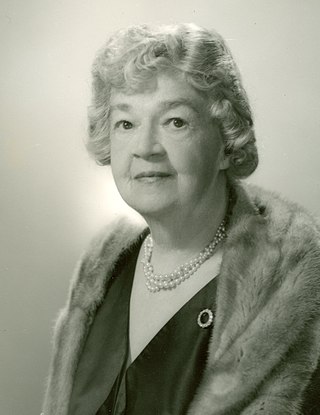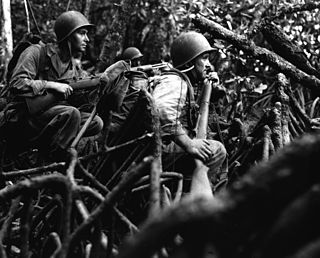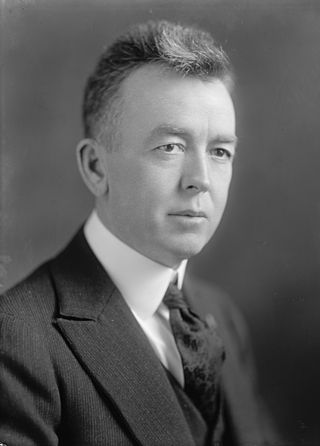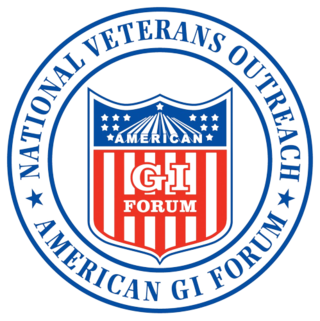During its Second Red Scare (1947-1957) a distinct set of domestic policies and conservative social mores came to dominate popular culture and interpersonal relations in the United States.
During its Second Red Scare (1947-1957) a distinct set of domestic policies and conservative social mores came to dominate popular culture and interpersonal relations in the United States.
In the aftermath of World War II, the birth rate spiked in the United States as millions of young men were discharged from the armed forces and began to establish new households. This Mid-20th century baby boom significantly increased the number of families in the United States.
Traditional explanations for the rise of this postwar family ideal focus on economic means: The GI bill increased soldiers' access to college education, greatly expanding college enrollment. In 1947, veterans accounted for 49 percent of college admissions. [1] The bill also increased access to low-interest home loans contributing to a large increase in home ownership: from 1944–1952, the Veterans Administration “supported nearly 2.4 million home loans for World War II veterans.” [1] However, closer examination shows that many people were left out of this new economic prosperity. Minorities who did not fit the ideal (including racial minorities, feminists, and homosexuals) were suppressed, unable to assert autonomy, and therefore contained.
African American men were eligible for GI Bill’s provisions and home loans, but many were prevented from buying houses in suburban areas because of redlining and other techniques of the racial segregation in the United States.
Other members of society who were excluded from the postwar ideal of middle-class employment and home ownership included, among others, women and Asian Americans. Women who had worked in factories to support the economy during World War II were pressured to leave the workforce and become housewives. Japanese Americans released from the World War II internment camps returned home to find their property confiscated.
This article may require cleanup to meet Wikipedia's quality standards. The specific problem is: this is just ethnography, which says nothing about government policy.(June 2016) |

The Federal Housing Administration (FHA), also known as the Office of Housing within the Department of Housing and Urban Development (HUD), is a United States government agency founded by President Franklin Delano Roosevelt, established in part by the National Housing Act of 1934. Its primary function is to provide insurance for mortgages originated by private lenders for various types of properties, including single-family homes, multifamily rental properties, hospitals, and residential care facilities. FHA mortgage insurance serves to safeguard these private lenders from financial losses. In the event that a property owner defaults on their mortgage, FHA steps in to compensate the lender for the outstanding principal balance.

The G.I. Bill, formally the Servicemen's Readjustment Act of 1944, was a law that provided a range of benefits for some of the returning World War II veterans. The original G.I. Bill expired in 1956, but the term "G.I. Bill" is still used to refer to programs created to assist American military veterans.

The United States Department of Veterans Affairs (VA) is a Cabinet-level executive branch department of the federal government charged with providing lifelong healthcare services to eligible military veterans at the 170 VA medical centers and outpatient clinics located throughout the country. Non-healthcare benefits include disability compensation, vocational rehabilitation, education assistance, home loans, and life insurance. The VA also provides burial and memorial benefits to eligible veterans and family members at 135 national cemeteries.
The Culture of Domesticity or Cult of True Womanhood[a] is a term used by historians to describe what they consider to have been a prevailing value system among the upper and middle classes during the 19th century in the United States. This value system emphasized new ideas of femininity, the woman's role within the home and the dynamics of work and family. "True women", according to this idea, were supposed to possess four cardinal virtues: piety, purity, domesticity, and submissiveness. The idea revolved around the woman being the center of the family; she was considered "the light of the home".
The Fair Deal was a set of proposals put forward by U.S. President Harry S. Truman to Congress in 1945 and in his January 1949 State of the Union Address. More generally, the term characterizes the entire domestic agenda of the Truman administration, from 1945 to 1953. It offered new proposals to continue New Deal liberalism, but with a conservative coalition controlling Congress, only a few of its major initiatives became law and then only if they had considerable Republican Party support. As Richard Neustadt concludes, the most important proposals were aid to education, national health insurance, the Fair Employment Practices Commission, and repeal of the Taft–Hartley Act. They were all debated at length, then voted down. Nevertheless, enough smaller and less controversial items passed that liberals could claim some success.
The term New Frontier was used by Democratic presidential candidate John F. Kennedy in his acceptance speech, delivered July 15, in the 1960 United States presidential election to the Democratic National Convention at the Los Angeles Memorial Coliseum as the Democratic slogan to inspire America to support him. The phrase developed into a label for his administration's domestic and foreign programs.

The United States Senate Committee on Veterans' Affairs deals with oversight of United States veterans problems and issues.

Edith Rogers was an American social welfare volunteer and politician who served as a Republican in the United States Congress. She was the first woman elected to Congress from Massachusetts. Until 2012, she was the longest serving Congresswoman and was the longest serving female Representative until 2018. In her 35 years in the House of Representatives she was a powerful voice for veterans and sponsored seminal legislation, including the Servicemen's Readjustment Act of 1944, which provided educational and financial benefits for veterans returning home from World War II, the 1942 bill that created the Women's Army Auxiliary Corps (WAAC), and the 1943 bill that created the Women's Army Corps (WAC). She was also instrumental in bringing federal appropriations to her constituency, Massachusetts's 5th congressional district.

G.I. is an informal term that refers to "a soldier in the United States armed forces, especially the army". It is mostly deeply associated with World War II, but continues to see use.

John Elliott Rankin was a Democratic politician from Mississippi who served sixteen terms in the U.S. House of Representatives from 1921 to 1953. He was co-author of the bill for the Tennessee Valley Authority and from 1933 to 1936 he supported the New Deal programs of President Franklin D. Roosevelt, which brought investment and jobs to the South.

The Veterans Benefits Administration (VBA) is an agency of the U.S. Department of Veterans Affairs. It is responsible for administering the department's programs that provide financial and other forms of assistance to veterans, their dependents, and survivors. Major benefits include veterans' compensation, veterans' pension, survivors' benefits, rehabilitation and employment assistance, education assistance, home loan guaranties, and life insurance coverage.

The United States home front during World War II supported the war effort in many ways, including a wide range of volunteer efforts and submitting to government-managed rationing and price controls. There was a general feeling of agreement that the sacrifices were for the national good during the war.

The American GI Forum (AGIF) is a congressionally chartered Hispanic veterans and civil rights organization founded in 1948. Its motto is "Education is Our Freedom and Freedom should be Everybody's Business". AGIF operates chapters throughout the United States, with a focus on veterans' issues, education, and civil rights. Its two largest national programs are the San Antonio-based Veterans Outreach Program, and the Dallas-based Service, Employment, Redevelopment-Jobs for Progress, Inc. (SER). The current National Commander is David Rodriguez.
Liberalism in the United States is based on concepts of unalienable rights of the individual. The fundamental liberal ideals of consent of the governed, freedom of speech, freedom of the press, freedom of religion, the separation of church and state, the right to bear arms, the right to due process, and equality before the law are widely accepted as a common foundation of liberalism. It differs from liberalism worldwide because the United States has never had a resident hereditary aristocracy, and avoided much of the class warfare that characterized Europe. According to American philosopher Ian Adams, "all US parties are liberal and always have been. Essentially they espouse classical liberalism, that is a form of democratized Whig constitutionalism plus the free market. The point of difference comes with the influence of social liberalism" and principled disagreements about the proper role of government.

The Post-9/11 Veterans Educational Assistance Act of 2008 is Title V of the Supplemental Appropriations Act of 2008, Pub. L. 110–252 (text)(PDF), H.R. 2642, an Act of Congress which became law on June 30, 2008. The act amended Part III of Title 38, United States Code to include a new Chapter 33, which expands the educational benefits for military veterans who have served since September 11, 2001. At various times the new education benefits have been referred to as the Post-9/11 GI Bill, the 21st Century G.I. Bill of Rights, or the Webb G.I. Bill, with many current references calling it simply the new G.I. Bill. President George W. Bush signed H.R. 2642 into law on June 30, 2008.
In the United States, housing segregation is the practice of denying African Americans and other minority groups equal access to housing through the process of misinformation, denial of realty and financing services, and racial steering. Housing policy in the United States has influenced housing segregation trends throughout history. Key legislation include the National Housing Act of 1934, the G.I. Bill, and the Fair Housing Act. Factors such as socioeconomic status, spatial assimilation, and immigration contribute to perpetuating housing segregation. The effects of housing segregation include relocation, unequal living standards, and poverty. However, there have been initiatives to combat housing segregation, such as the Section 8 housing program.
A blue discharge, also called blue ticket, was a form of administrative military discharge formerly issued by the United States beginning in 1916. It was neither honorable nor dishonorable. The blue ticket became the discharge of choice for commanders seeking to remove homosexual service members from the ranks. They were also issued disproportionately to African Americans.
The United States military formerly excluded gay men, bisexuals, and lesbians from service. In 1993, the United States Congress passed, and President Bill Clinton signed, a law instituting the policy commonly referred to as "Don't ask, don't tell" (DADT), which allowed gay, lesbian, and bisexual people to serve as long as they did not reveal their sexual orientation. Although there were isolated instances in which service personnel were met with limited success through lawsuits, efforts to end the ban on openly gay, lesbian, and bisexual people serving either legislatively or through the courts initially proved unsuccessful.
The Impact of the Korean War on the Economy of the United States refers to the ways in which the American economy was affected by the Korean experience from 1950 to 1953. The Korean War boosted GDP growth through government spending, which in turn constrained investment and consumption. While taxes were raised significantly to finance the war, the Federal Reserve followed an anti-inflationary policy. Though there was a large increase in prices at the outset of the war, price and wage controls ultimately stabilized prices by the end of the war. Consumption and investment continued to grow after the war, but below the trend rate prior to the war.

Many Chinese Americans enlisted in the United States military or served in defense industries during World War II. It has been estimated that around 12,000 to 15,000 Chinese American men, representing up to 20 percent of the Chinese American male population, served during the Second World War. Although the majority of Chinese American servicemen fought in non-segregated units, all segregated units belonged to the 14th Air Service Group or the 987th Signal Company. Chinese American women also served, including two Women Airforce Service Pilots and countless other women in defense industries. Service in World War II played a large role in increasing social acceptance for Chinese Americans, and many Chinese American veterans were able to expedite their naturalization and bring their foreign-born wives and children to the United States.